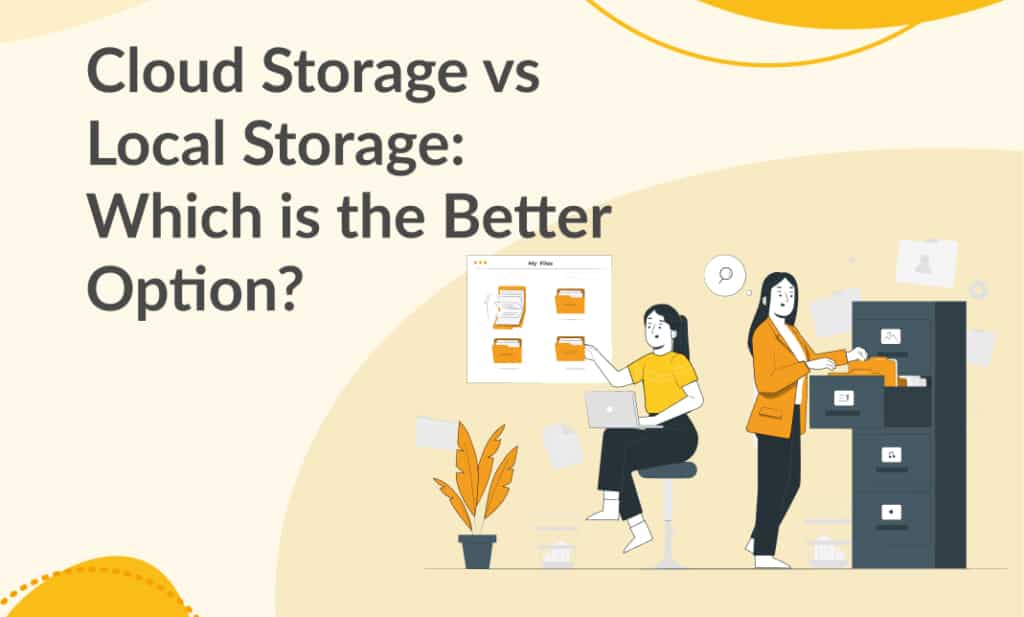Cloud Storage vs Local Storage: Which is the Better Option?

Cloud document storage technology has really taken off in the last few years. The technology offers a more secure and easy to access data storage solution especially for businesses looking for a more efficient, agile, and flexible way to store important business files and documents.
Many companies, on the other hand, are still relying on their in-house local storage.
So, which is the better option between cloud storage and local storage?
Let’s answer this question by looking at the benefits and challenges that come with each option.
Cloud Storage
Cloud storage can be defined as the process of storing files, documents, and other types of data in an online repository with multiple servers in different locations.
The cloud is usually maintained by a hosting company. It is a hosted storage owned by a third-party company that allows you to upload and store your data in their servers.
Cloud storage comes with many advantages including the following:
- You only need an Internet connection and the required permissions or passwords to access your cloud-stored data.
- You can retrieve your data from anywhere even on a mobile device.
- A flexible and agile data storage system that increases as your business or storage needs grow.
- Cloud storage allows easy and efficient collaboration. Teams working on the same project can access the same data and tools and work together more efficiently.
- Cloud is more secure because cloud providers have the latest security and disaster recovery measures in place.
- When you switch to cloud computing you reduce energy consumption by 70% or more. It’s a green way of doing business.
- Cloud providers also give you access to more tools and capabilities such as virtualization, collaboration tools, data protection, and security protocols, and much more.
Local Storage

Local storage is basically the process of storing your digital files and documents on a physical data storage device such as a computer hard disc, solid-state drive (SSD), or an external device such as a flash drive, micro SD card, or DVD disc.
Just like the name suggests, local storage ensures that your files and documents are stored at hand for fast retrieval whenever you need them.
Local storage has the advantage of being cheap, easy to use, and the data is always under your control. However, this type of data storage has its share of challenges or shortcomings.
For instance, you could easily lose all your stored data if the physical storage device is lost, malfunctions, or breaks. You cannot access the data if you don’t have the storage device with you and neither can you share the data with other people in different locations.
On a larger scale, local storage can be quite costly, especially when you consider the acquisition and installation of the required hardware and infrastructure. Local backups of your data can also be destroyed by a major on-site disaster.
Which is the Better Option — Cloud or Local Storage?
Cloud storage is definitely better than local storage but ultimately your choice will depend on your business goals.
Most businesses, however, thrive well with a combination of both options. You could have on-site local storage for frequently used tasks and tools and cloud storage for better collaboration and storage of important files.
Folderit provides affordable cloud storage designed to meet the growing storage demands of small and medium-sized businesses.



